Manmohan Singh dismissed as "not correct" an impression that talks with Pakistan would continue irrespective of whether Islamabad takes action aginst terror.
Under fire from the opposition and facing reservations within the Congress, prime minister Manmohan Singh today made it clear that there will be no resumption of talks with Pakistan unless it tackles terror against India emanating from its soil.
Seeking to allay fears over the delinking of terrorism from the composite dialogue process as contained in the Indo-Pak joint statement issued in Egypt, he told the Lok Sabha that it is impossible for any government in India to work towards full normalisation of relations with Pakistan unless it fulfils in letter and spirit its commitment not to allow its territory to be used against India for terror.
Singh made a spirited 45-minute intervention in the Lok Sabha on the debate on the controversial joint statement during which the opposition accused him of breaking the national consensus on foreign policy.
"All the waters of Neptune cannot wash away the sins of Sharm el-Sheikh," thundered the BJP's Yashwant Sinha, former external affairs minister, who initiated the debate. Sinha called the joint statement a "shame". Several other opposition stalwarts attacked the government on the issue.
Singh, whose speech was repeatedly cheered by the treasury benches, dismissed as "not correct" an impression that talks with Pakistan would continue irrespective of whether Islamabad takes action aginst terror.
He held his ground on the mention of Balochistan in the joint statement, saying India was ready to discuss all issues, including Pakistan's "misgivings" and "false allegations", as it does not want to hide anything.
Singh denied reports that Pakistan had given any dossier on alleged evidence of India's involvement in Balochistan in Sharm el-Sheikh.
In his speech, the prime minister rejected all criticism that India had diluted its positions on climate change and the end-user monitoring arrangement with the US and asserted that there would be no difficulty in getting nuclear enrichment and reprocessing technologies in the wake of a G8 resolution on the issue.
But Singh insisted that dialogue and engagement with Pakistan was the only way forward because talking through third parties has severe "limitations as to its effectiveness".
The prime minister dismissed the opposition National Democratic Alliance's criticism of his handling of the Pakistan policy in the wake of the Mumbai terror attack of November 2008, saying it was for the first time Pakistan had ever admitted to India that its nationals and a terrorist organisation based there had carried out such an act here.
"The reality is that this is far more than the NDA government was ever able to extract from Pakistan during its entire tenure despite all their tall talk," he said, adding that the UPA needs no lessons from the opposition on how to conduct foreign affairs or secure the country against terrorist threats.
At the same time Singh praised the "statesmanship" of his "distinguished predecessor" Atal Bihari Vajpayee to defend his strategy of engaging with Islamabad despite terror attacks.
Referring to the Kargil conflict, Kandahar hijack, the terrorist attack on Parliament, and the full mobilisation of the armed forces in both countries, the prime minister acknowledged that "to his great credit, Vajpayee was not deterred as a statesman should not be".
He also recalled Vajpayee's 2004 visit to Pakistan that set out a vision for a cooperative relationship and said that the then opposition, the Congress, had supported these bold steps.
"I, for one, share Vajpayee's vision, and I have also felt his frustration in dealing with Pakistan," he said.
He made it clear that dialogue and engagement is the only way to deal with the neighbour, but it needs to "act effectively" before talks can be held.
"We do not dilute our positions or our resolve to defeat terrorism by talking to any country," Singh said, noting that even other major powers affected by Pakistan-based
terrorism are engaging with that country.
"Unless we talk directly to Pakistan, we will have to rely on third parties to do so. That route has severe limitations as to its effectiveness," the prime minister said.
Noting that dealing with Pakistan is not easy, he made it clear that India wants good relations with Islamabad, but it is "in our vital interest to make sincere efforts to live in peace with Pakistan".
He, however, added that "despite the best of intentions, we cannot move forward if terrorist attacks launched from Pakistani soil continue to kill and injure our citizens, here and abroad. That is the national position."
Singh said he had conveyed to both president Asif Ali Zardari and prime minister Yousaf Raza Gilani the deep sense of anger and hurt of the people of India owing to the persistence of terrorist attacks in India.
"I told them that the operations of all terrorist groups that threaten India must end permanently. I urged them to make no distinction between different organisations.
"I said that it was not enough to say that Pakistan is itself a victim of terrorism. They must show the same political will and take the same strong and sustained action against terrorist groups operating on their eastern border as they now seem to be taking against groups on their western border."
The prime minister said both Zardari and Gilani had assured him that the government of Pakistan is serious about tackling the problem and effective action would be taken against the perpetrators of the Mumbai carnage.
Referring to Sinha's question as to what had changed between his meeting with Zardari in Yekaterinburg in Russia last month and the one with Gilani this month, he said New Delhi had received a dossier, which showed progress, though not adequate progress.
"Sinha also asked me do we trust Pakistan. Let me say that in the affairs of two neighbours we should recall what [former US] president [Ronald] Reagan once said: trust, but verify. There is no other way unless we go to war."
Singh said the Pakistani position that the terrorists concerned are 'non-state actors' gave little satisfaction to India and Islamabad was told that another attack of this nature would put an intolerable strain on the bilateral relationship and Pakistan must take all possible measures to prevent a recurrence.
Singh said he wished to reiterate that Zardari and Gilani know that the two countries can have a meaningful dialogue only if Pakistan fulfils its commitment in letter and spirit not to allow its territory to be used in any manner for terrorist activities against India.
"I stand by what I have said in Parliament — that there has been no dilution of our position in this regard," he said.
He said an interpretation had been sought to be given to the joint statement that India would continue to engage in a composite dialogue whether Pakistan takes action against
terrorism or not.
"This is not correct. The joint statement emphasised that action on terrorism cannot be linked to dialogue. Pakistan knows very well that terrorism being such a mortal and global threat, no civilised country can set terms and conditions for rooting it out," Singh said.
"There are uncertainties on the horizon and I cannot predict the future in dealing with neighbours, two nuclear powers. We have to begin to trust each other, but no, not blindly, but trust and verify. People say that we have broken the national consensus. I refuse to believe that we have broken the national consensus," he said.
![submenu-img]() Meet IIT-JEE topper with AIR 1, son of government school teachers, he went on to pursue...
Meet IIT-JEE topper with AIR 1, son of government school teachers, he went on to pursue...![submenu-img]() Salman Khan house firing case: One more Lawrence Bishnoi gang member arrested by Mumbai Police
Salman Khan house firing case: One more Lawrence Bishnoi gang member arrested by Mumbai Police ![submenu-img]() Mukesh Ambani to host Anant-Radhika's second pre-wedding function: Trip to start from Italy with 800 guests and end in..
Mukesh Ambani to host Anant-Radhika's second pre-wedding function: Trip to start from Italy with 800 guests and end in..![submenu-img]() Driver caught on camera running over female toll plaza staff on Delhi-Meerut expressway, watch video
Driver caught on camera running over female toll plaza staff on Delhi-Meerut expressway, watch video![submenu-img]() 'If you come and do something here...': EAM S Jaishankar on India's 'message' against terrorism
'If you come and do something here...': EAM S Jaishankar on India's 'message' against terrorism![submenu-img]() Meet IIT-JEE topper with AIR 1, son of government school teachers, he went on to pursue...
Meet IIT-JEE topper with AIR 1, son of government school teachers, he went on to pursue...![submenu-img]() TN 11th Result 2024: TNDGE Tamil Nadu HSE (+1) result declared, direct link here
TN 11th Result 2024: TNDGE Tamil Nadu HSE (+1) result declared, direct link here![submenu-img]() Meet doctor who cracked UPSC exam with AIR 9 but didn’t became IAS due to…
Meet doctor who cracked UPSC exam with AIR 9 but didn’t became IAS due to…![submenu-img]() TN 11th Result 2024 to be declared today; know how to check
TN 11th Result 2024 to be declared today; know how to check![submenu-img]() Meet man who worked as coolie, studied from railway's WiFi, then cracked UPSC exam to become IAS, secured AIR...
Meet man who worked as coolie, studied from railway's WiFi, then cracked UPSC exam to become IAS, secured AIR...![submenu-img]() DNA Verified: Is CAA an anti-Muslim law? Centre terms news report as 'misleading'
DNA Verified: Is CAA an anti-Muslim law? Centre terms news report as 'misleading'![submenu-img]() DNA Verified: Lok Sabha Elections 2024 to be held on April 19? Know truth behind viral message
DNA Verified: Lok Sabha Elections 2024 to be held on April 19? Know truth behind viral message![submenu-img]() DNA Verified: Modi govt giving students free laptops under 'One Student One Laptop' scheme? Know truth here
DNA Verified: Modi govt giving students free laptops under 'One Student One Laptop' scheme? Know truth here![submenu-img]() DNA Verified: Shah Rukh Khan denies reports of his role in release of India's naval officers from Qatar
DNA Verified: Shah Rukh Khan denies reports of his role in release of India's naval officers from Qatar![submenu-img]() DNA Verified: Is govt providing Rs 1.6 lakh benefit to girls under PM Ladli Laxmi Yojana? Know truth
DNA Verified: Is govt providing Rs 1.6 lakh benefit to girls under PM Ladli Laxmi Yojana? Know truth![submenu-img]() Remember Harsh Lunia? Just Mohabbat child star, here's how former actor looks now, his wife is Bollywood's popular...
Remember Harsh Lunia? Just Mohabbat child star, here's how former actor looks now, his wife is Bollywood's popular...![submenu-img]() Mother's Day 2024: Bollywood supermoms who balance motherhood, acting, and run multi-crore businesses
Mother's Day 2024: Bollywood supermoms who balance motherhood, acting, and run multi-crore businesses![submenu-img]() Rocky Aur Rani's Golu aka Anjali Anand shocks fans with drastic weight loss without gym, says fitness secret is...
Rocky Aur Rani's Golu aka Anjali Anand shocks fans with drastic weight loss without gym, says fitness secret is...![submenu-img]() In pics: Ram Charan gets mobbed by fans during his visit to Pithapuram for ‘indirect campaign’ for uncle Pawan Kalyan
In pics: Ram Charan gets mobbed by fans during his visit to Pithapuram for ‘indirect campaign’ for uncle Pawan Kalyan![submenu-img]() Streaming This Week: Yodha, Aavesham, Murder In Mahim, Undekhi season 3, latest OTT releases to binge-watch
Streaming This Week: Yodha, Aavesham, Murder In Mahim, Undekhi season 3, latest OTT releases to binge-watch![submenu-img]() Haryana Political Crisis: Will 3 independent MLAs support withdrawal impact the present Nayab Saini led-BJP government?
Haryana Political Crisis: Will 3 independent MLAs support withdrawal impact the present Nayab Saini led-BJP government?![submenu-img]() DNA Explainer: Why Harvey Weinstein's rape conviction was overturned, will beleaguered Hollywood mogul get out of jail?
DNA Explainer: Why Harvey Weinstein's rape conviction was overturned, will beleaguered Hollywood mogul get out of jail?![submenu-img]() What is inheritance tax?
What is inheritance tax?![submenu-img]() DNA Explainer: What is cloud seeding which is blamed for wreaking havoc in Dubai?
DNA Explainer: What is cloud seeding which is blamed for wreaking havoc in Dubai?![submenu-img]() DNA Explainer: What is Israel's Arrow-3 defence system used to intercept Iran's missile attack?
DNA Explainer: What is Israel's Arrow-3 defence system used to intercept Iran's missile attack?![submenu-img]() Salman Khan house firing case: One more Lawrence Bishnoi gang member arrested by Mumbai Police
Salman Khan house firing case: One more Lawrence Bishnoi gang member arrested by Mumbai Police ![submenu-img]() Meet actress, who got rejected for her looks, had no hit for 15 years; later beat Alia, Deepika, Katrina at box office
Meet actress, who got rejected for her looks, had no hit for 15 years; later beat Alia, Deepika, Katrina at box office![submenu-img]() Abdu Rozik breaks silence on his wedding announcement being called ‘publicity stunt’: ‘The whole world is…’
Abdu Rozik breaks silence on his wedding announcement being called ‘publicity stunt’: ‘The whole world is…’![submenu-img]() Meet actress who made debut with Salman Khan, had super flop career, then got TB, now lives in chawl, runs..
Meet actress who made debut with Salman Khan, had super flop career, then got TB, now lives in chawl, runs..![submenu-img]() Meet actress who worked with Naseeruddin Shah, sister of popular models, is now getting trolled on social media for..
Meet actress who worked with Naseeruddin Shah, sister of popular models, is now getting trolled on social media for..![submenu-img]() Driver caught on camera running over female toll plaza staff on Delhi-Meerut expressway, watch video
Driver caught on camera running over female toll plaza staff on Delhi-Meerut expressway, watch video![submenu-img]() Delhi man takes 200 flights in 110 days, steals lakhs worth of jewelry from passengers
Delhi man takes 200 flights in 110 days, steals lakhs worth of jewelry from passengers![submenu-img]() Viral video: Man makes paratha with 'diesel', internet reacts
Viral video: Man makes paratha with 'diesel', internet reacts![submenu-img]() Viral video of 'black jalebi' leaves internet in shock; netizens say 'hey bhagwan...'
Viral video of 'black jalebi' leaves internet in shock; netizens say 'hey bhagwan...'![submenu-img]() Real-life Bambi and Thumper? Adorable deer and rabbit video melts hearts online
Real-life Bambi and Thumper? Adorable deer and rabbit video melts hearts online




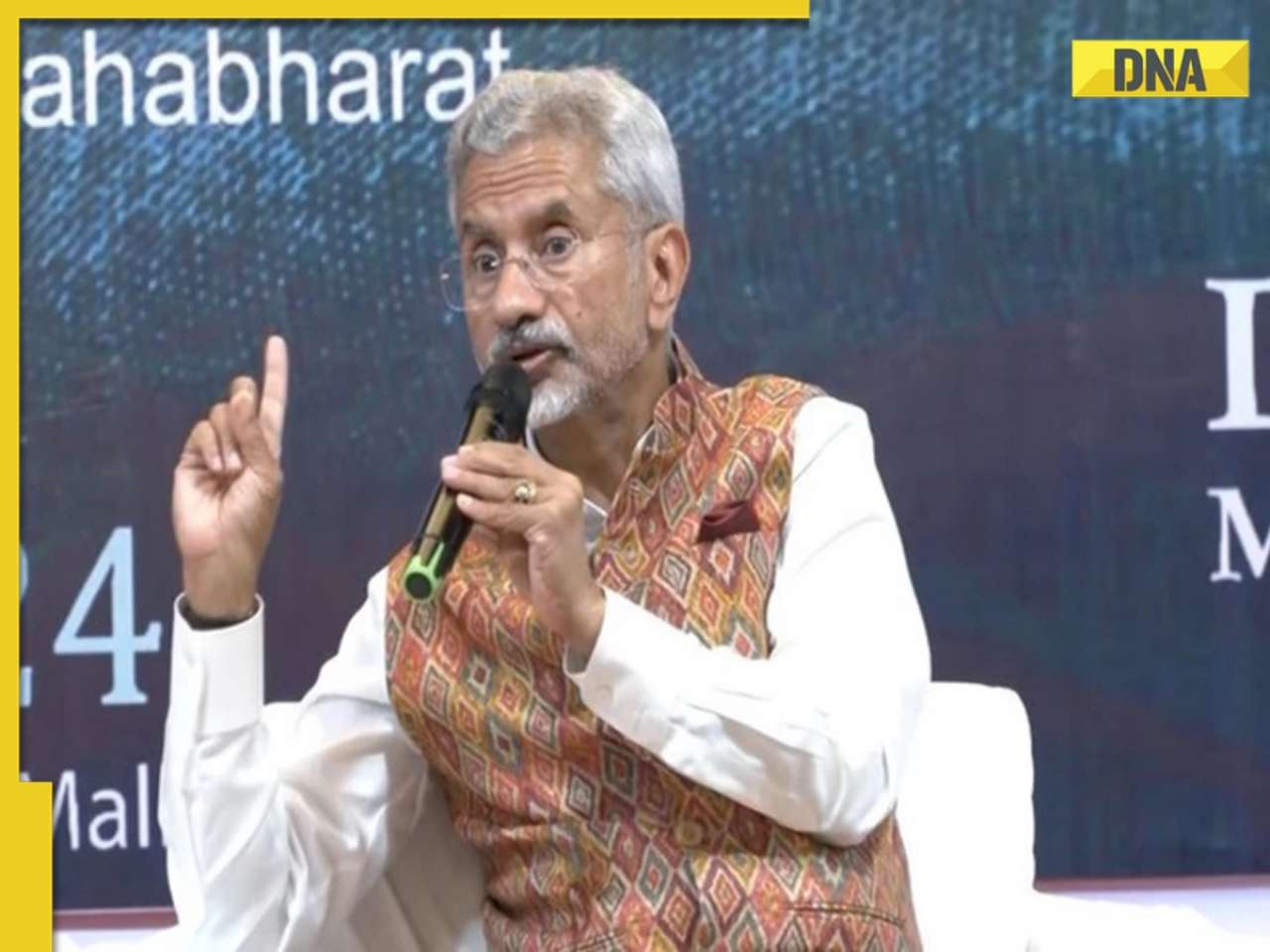




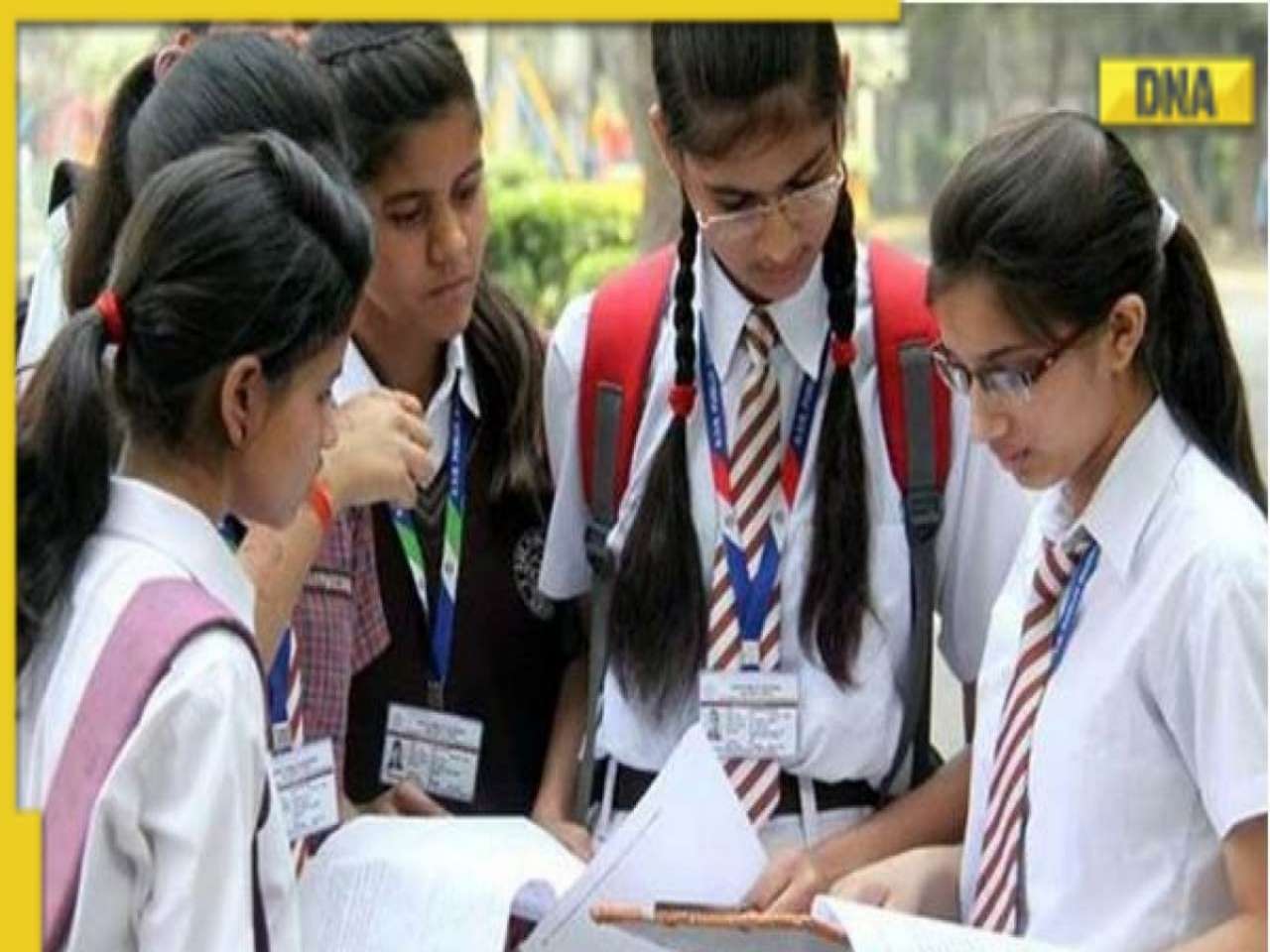

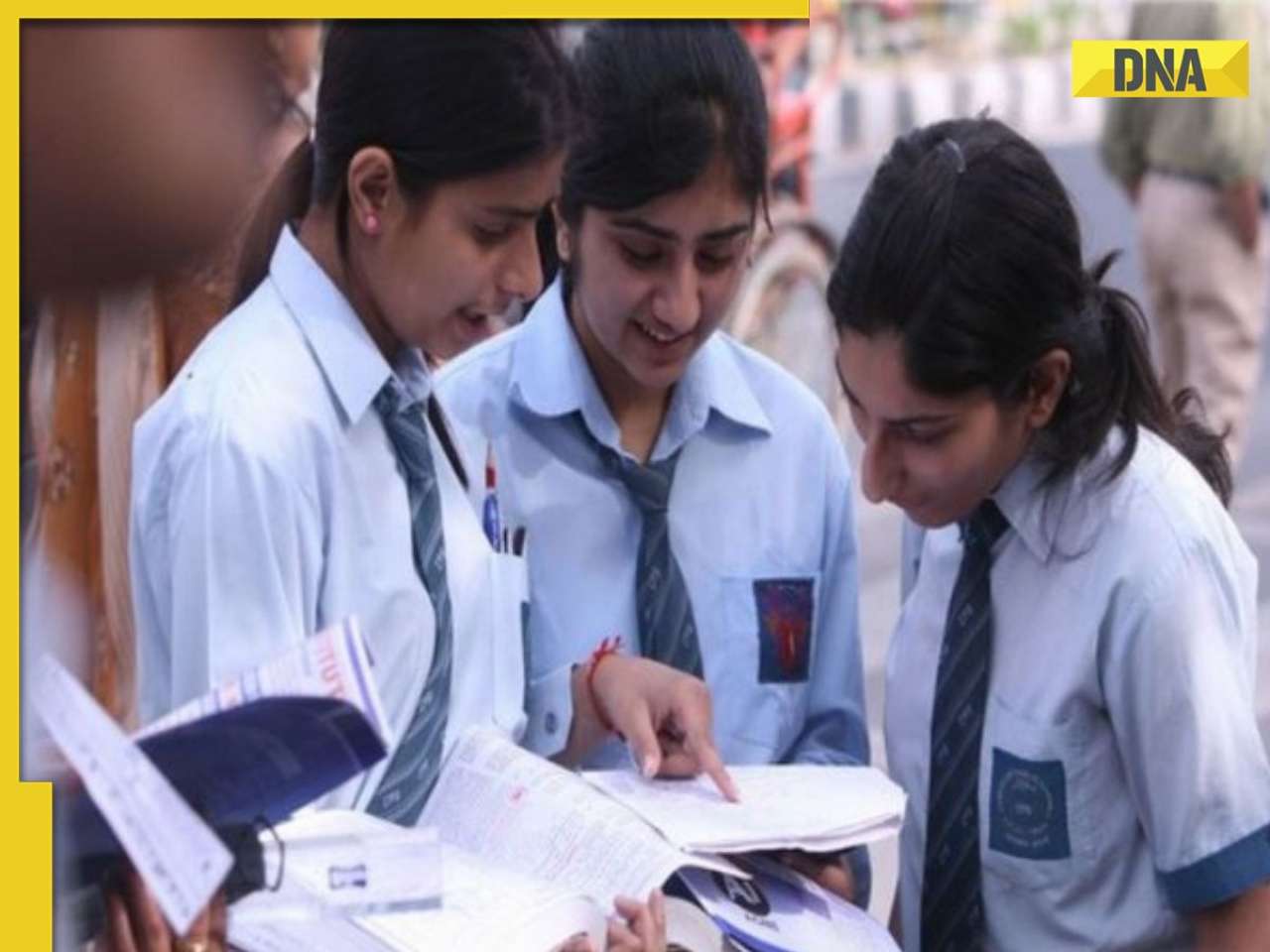


































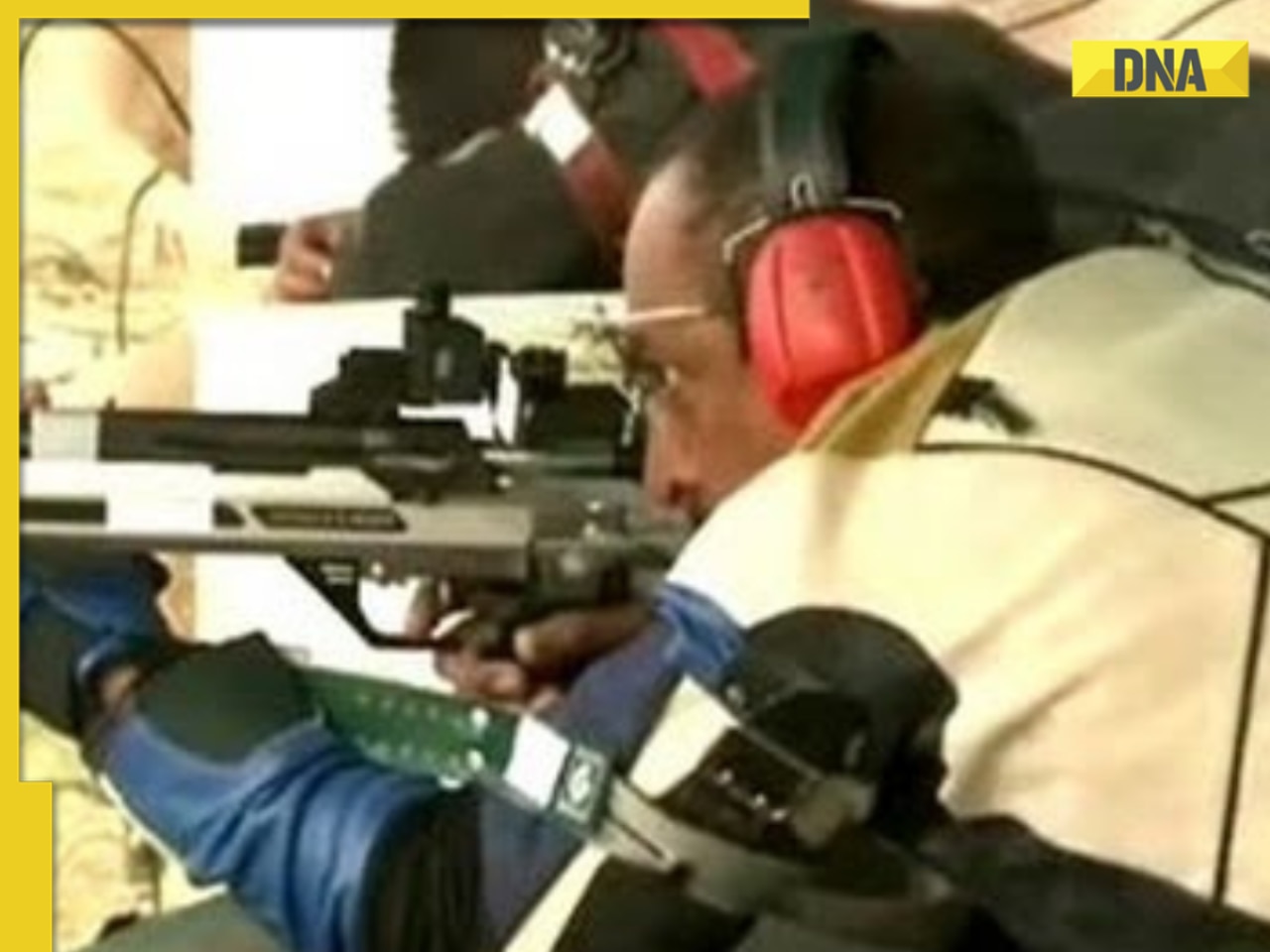
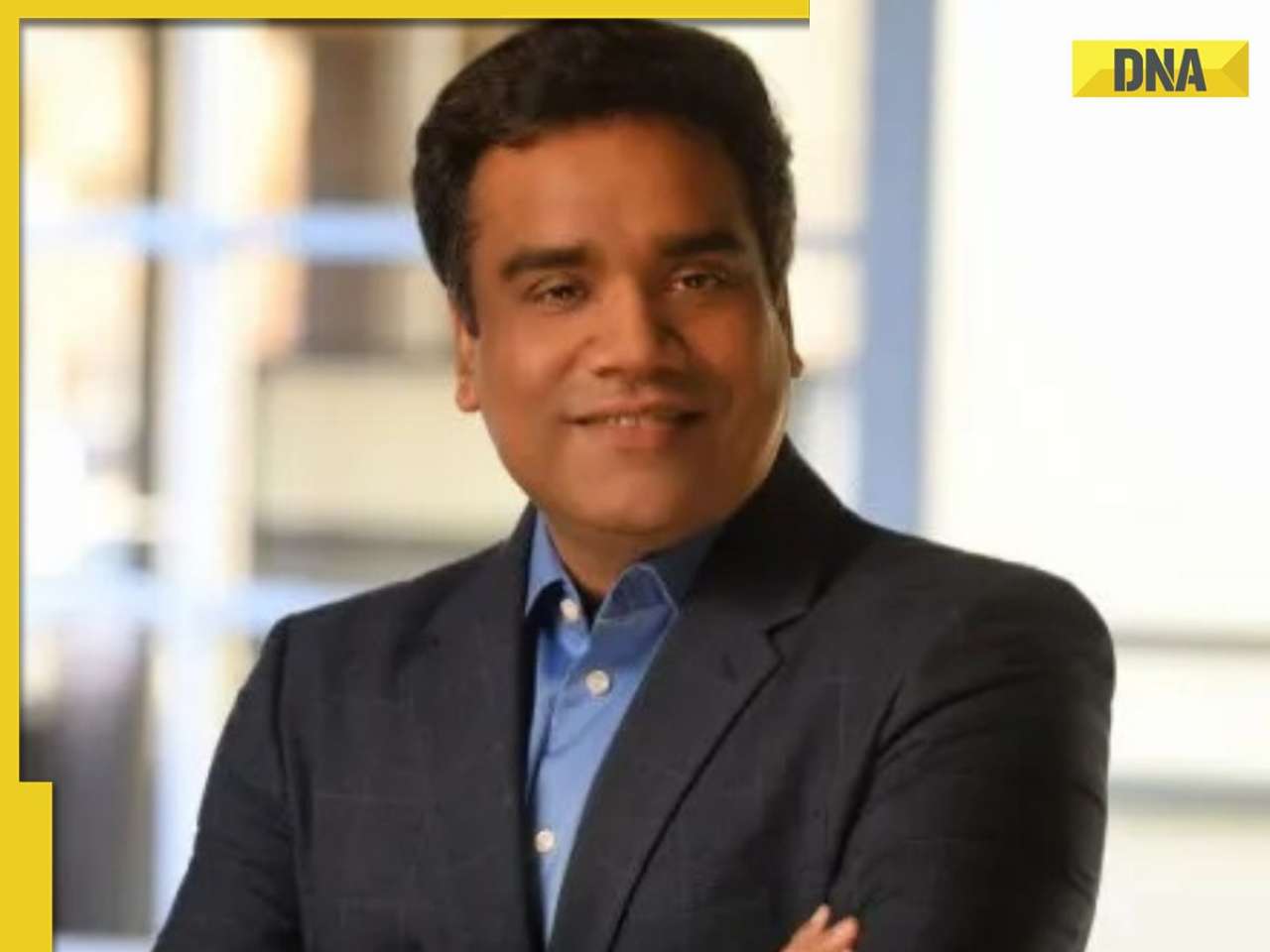





)
)
)
)
)
)